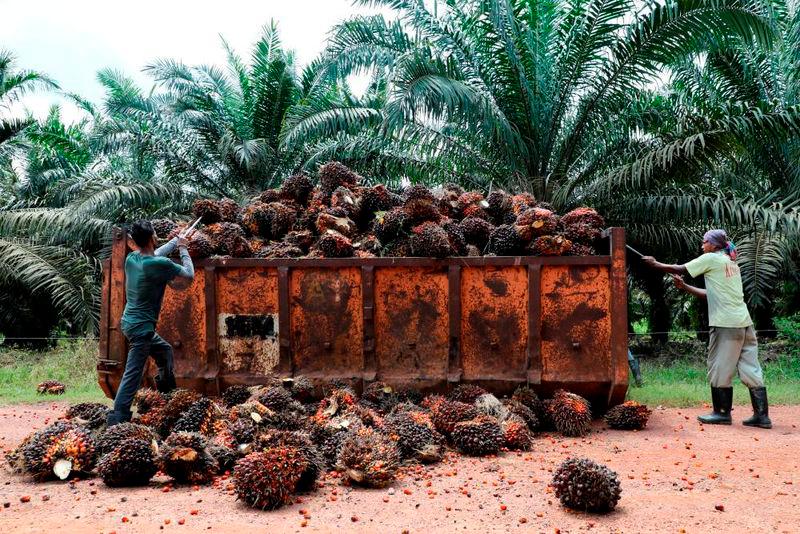I AM now past eighty, and my days in the plantations began in 1949, when I lived on the large oil palm estate that now belongs to SD Guthrie Bhd in Layang Layang, Johor.
As I walked along the estate roads, I looked at the palms, recalling how the fun ended when I had to return to Rembau for school.
Later, in my working life, I returned to the plantations – first working with rubber and later with oil palm. Since retiring over 25 years ago, I have remained a keen observer of the industry and have noticed several changes over time.
These changes came from the owners through their associations. The largest body is the the Malaysian Palm Oil Association or MPOA, with most of the members being big corporations in oil palm and rubber, including FGV Corporation Bhd, SD Guthrie Bhd, IOI Corporation, United Plantations, Genting Plantations, Hap Seng Plantations and Kuala Lumpur Kepong Bhd.
Today, the plantations are facing issues that are hard to resolve, including labour shortages that are hindering harvesting and crop recovery, resulting in annual revenue losses amounting to billions of ringgit.
The cost of production has gone up, affected by the higher prices of fertiliser and materials. Without an increase in yield per hectare, the production cost per tonne of crude palm oil has also gone up. These challenges affect not only members of the MPOA but also those in the Malaysian Estate Owners Association (MEOA).
The MEOA is made up of plantation companies that are generally smaller than those in the MPOA. There are around 163 members, many having plantations all over including in Sabah and Sarawak. Most are family-run businesses, and now the younger generation is taking over.
However, they too face similar problems to those of the MPOA. It is good that the two meet regularly and are working with the government so that the industry can expand further, rather than stagnate or even decline over time.
I was glad to be included in the discussion over dinner with representatives from the two associations, MEOA and MPOA.
The new chief executive of MPOA, Roslin Azmy Hassan, brings extensive experience in the plantation industry, having begun his career at Carey Island with Harrison Malaysia Plantations Bhd in 1984.
He has worked in many estates and eventually led the plantations under SD Guthrie in Liberia, and I found it interesting to listen to his stories on the challenges of working there.
Later, he managed their plantations in Indonesia before returning to the head office as CEO of SD Guthrie’s Upstream Division until his retirement recently.
Now with his new job, he knows he has a heavy task to resolve. However, with his exposure, I am sure he is equipped to handle the task.
A main issue is the windfall profit levy that has been in force when production costs are low and the margins are high. With the increased costs, there is no longer a true “windfall”, making it necessary to review the levy. It will require the government’s careful consideration to arrive at a solution.
Another major problem is labour shortage, which is getting better now with the new government approvals for imported labour.
However, the situation can get worse if the flow of labour ceases. The skilled workers mainly come from certain parts of Indonesia such as Lombok, South Sulawesi and southern Java. With more development, the Indonesians may opt to find work in their own country. Therefore, industry owners must step up efforts to mechanise operations, especially in harvesting.
Fortunately, Roslin’s background in mechanisation from his previous roles is advantageous, as significant progress has already been made in mechanising weeding and fertiliser application.
He is now the chairman of the mechanisation committee formed by the Malaysian Palm Oil Board (MPOB). As chairman, he has an added responsibility of finding ways to mechanise harvesting and reduce dependency on imported labour.
Roslin has the help of MPOA director of government affairs, Mohammad Jaafar Ahmad, who also has extensive experience in the industry.
He started as a planter and later worked with government bodies related to the industry, including in the United States and London. Later, he was the head of the body Palm Oil Refiners Association of Malaysia (Poram).
After leaving Poram, he became a senior manager at the Council of Palm Oil Producing Countries, a body based in Jakarta that promotes palm oil interests. With his wide experience, he will be useful to MPOA. With them in MPOA, we hope to see a closer collaboration between the industry and the government.
The challenges they face are also shared by MEOA, which is now headed by the newly-elected president Zachary Anifah Aman, who has had only a few weeks in the role.
Zachary has been in the industry for many years. He started a plantation in a jungle in Sabah, near Telupid. Now he runs a business growing vegetables in greenhouses in Bestari Jaya.
In MEOA, Zachary works with his team of committee members, including Steven Chong Soon Ann who manages a rubber plantation, and Tan Yow Soon who is experienced in research and plantation in management working for Genting Plantations Bhd. The MEOA has representatives on the boards of MPOB and the Malaysian Rubber Board.
I am always glad to be invited to any industry dinner and to listen to their views. I was looking at a generation much younger than me.
Some of my notions appeared to be no longer valid and I got to learn by listening to the younger voices, and I went home with this question in mind:
“How will the industry look like if these major questions are not resolved?”
I realised that the solution can only come from those who currently hold the baton and are driving forward. They will find their answers, even if they differ from mine.
The writer has extensive experience in the management of oil palm plantations. Comments: letters@thesundaily.com









